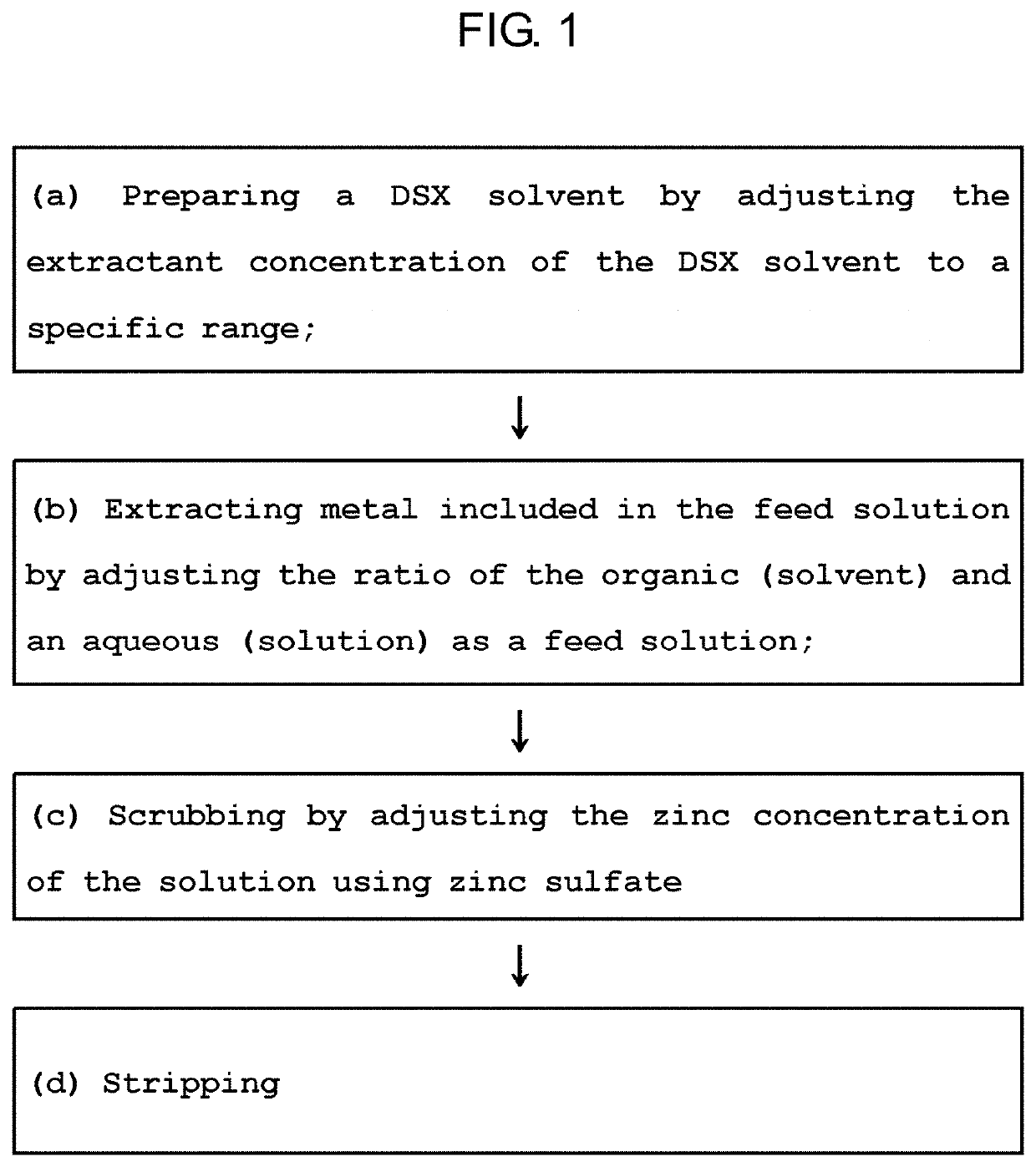Method of inhibiting extractant degradation by controlling extractive capacity and preventing direct degradation
a technology of extractant degradation and extractive capacity, which is applied in the preparation of cobalt compounds, cobalt compounds, cobalt compounds, etc., can solve the problems of vicious cycle of process, increase the total metal/mol oxime to accelerate and the degradation of extractants in the dsx process, so as to inhibit the degradation of extractants and increase the extractive efficiency of cobalt and zin
- Summary
- Abstract
- Description
- Claims
- Application Information
AI Technical Summary
Benefits of technology
Problems solved by technology
Method used
Image
Examples
Embodiment Construction
[0031]Hereinafter, embodiments of the present invention are described in detail with reference to the accompanying drawings, which will be readily apparent to those skilled in the art to which the present invention pertains. The present invention may be embodied in many different forms and is not limited to the embodiments described herein.
[0032]FIG. 1 is a flow chart of a method for inhibiting the extractant degradation according to an embodiment of the present invention.
[0033]Referring to FIG. 1, the method of inhibiting the extractant degradation according to the present invention may be divided into the preparing step, the extracting step and the scrubbing step.
[0034]In particular, the method may include (a) the preparing step of a DSX solvent by adjusting the extractant concentration of the DSX solvent to a specific range; (b) the extracting step of metal included in the feed solution by adjusting the ratio of the organic (solvent) and an aqueous (solution) as a feed solution; ...
PUM
| Property | Measurement | Unit |
|---|---|---|
| Concentration | aaaaa | aaaaa |
| Concentration | aaaaa | aaaaa |
| Fraction | aaaaa | aaaaa |
Abstract
Description
Claims
Application Information
 Login to View More
Login to View More - R&D
- Intellectual Property
- Life Sciences
- Materials
- Tech Scout
- Unparalleled Data Quality
- Higher Quality Content
- 60% Fewer Hallucinations
Browse by: Latest US Patents, China's latest patents, Technical Efficacy Thesaurus, Application Domain, Technology Topic, Popular Technical Reports.
© 2025 PatSnap. All rights reserved.Legal|Privacy policy|Modern Slavery Act Transparency Statement|Sitemap|About US| Contact US: help@patsnap.com



